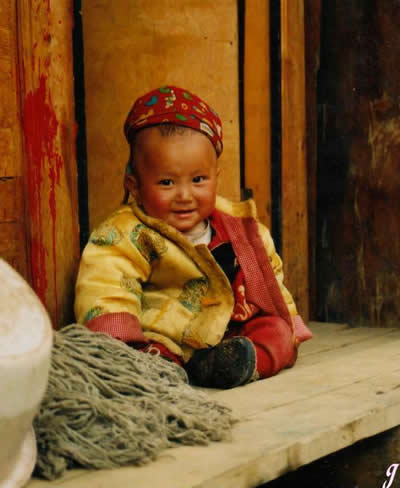Common misperceptions about China
By Chris Devonshire-Ellis
Feb. 13 – During the build up to the Olympics, China will come under increasing scrutiny from the world press and tourists. Many of them may not be familiar with China and some will have misperceptions about the country based on old stories or misunderstandings. In this occasional series we will highlight some of these issues and provide frank explanations as to the reality of the situation in China as it is today.
- The Chinese are subject to a one child policy and this affects the population in Tibet

China does have a one child policy, however this affects only Han Chinese (the bulk of the population) and then again only in cities. Rural-based Chinese (about 50 percent of the population) are permitted to have more children, depending upon regional circumstances. Tibetans are not affected by this and are permitted to have up to five children in an attempt to redress the current dwindling population of ethnic Tibetans – caused not by one child policies but by the practice over the past 100 years, and endorsed by the Dalai Lama of sending the first male born child into the monasteries, where they remain celibate. - The Chinese sanction infanticide towards female babies

There is no government law that permits the killing of female babies and when caught, offenders are charged with murder. This practice does remain in small, uneducated rural communities where a bias towards male children exists due to the heavy manual workload of agricultural based families. The government have earmarked free education and investment in these regions to target the problem, which is linked to a lack of education and age old prejudices as opposed to any government-based policy. - China executes more people in the world than anyone else

Amnesty International puts the rate for China executions – a State secret – at about 1,000 per annum. This compares with a U.S. total in 2007 of 53, but with a population five times smaller than China’s. Compared on a figure by population, China executes about four times as many people as the U.S., which remains the sixth highest country for executions after China, Iran, Pakistan, Iraq and Sudan, and the only one in the developed world. In Europe, only Belarus carries the death penalty. - China does not permit democratic elections

Although China remains a one-party state, elections are held both within the politburo and further down the party hierarchy. Local government elections in China are now open to democratic procedures, with locals able to vote to elect local leaders, and the government has stated it’s desire to see this grass roots democratic process move further up the ladder of government over time. Labor union representatives also by law have to be democratically elected by the workforce they represent, while the National Development and Reform Commission, a specialist think tank reporting to the president, has a specific team of academics studying the effects of democracy in China. - China does not permit religious freedom

While the State remains officially atheist, established religions are practiced in China and are permitted to operate. Catholic churches and cathedrals are open, as are Synagogues, Mosques and other temples for various Buddhist sects, in addition to many Tibetan monasteries. Organized religion was persecuted up to 30 years ago, and restrictions on cults such as Falun Gong remain in place, but China today is more receptive to religious beliefs and it is not a problem to be able to attend services and ceremonies amongst the mainstream religions, although in some specific, potentially unstable areas, such as Western Xinjiang province (which borders Afghanistan and Pakistan) a conservative approach is taken concerning Islam at this moment. China is continuing to negotiate with the Vatican over establishing direct diplomatic relations, however Catholic churches are open on the mainland with Chinese bishops presiding.
Comments on this series are welcome
- Previous Article Beijing Olympics becoming politicized, UK Olympic Association backs down after stand-off with athletes
- Next Article Chinese New Year retail sales up 16 percent









